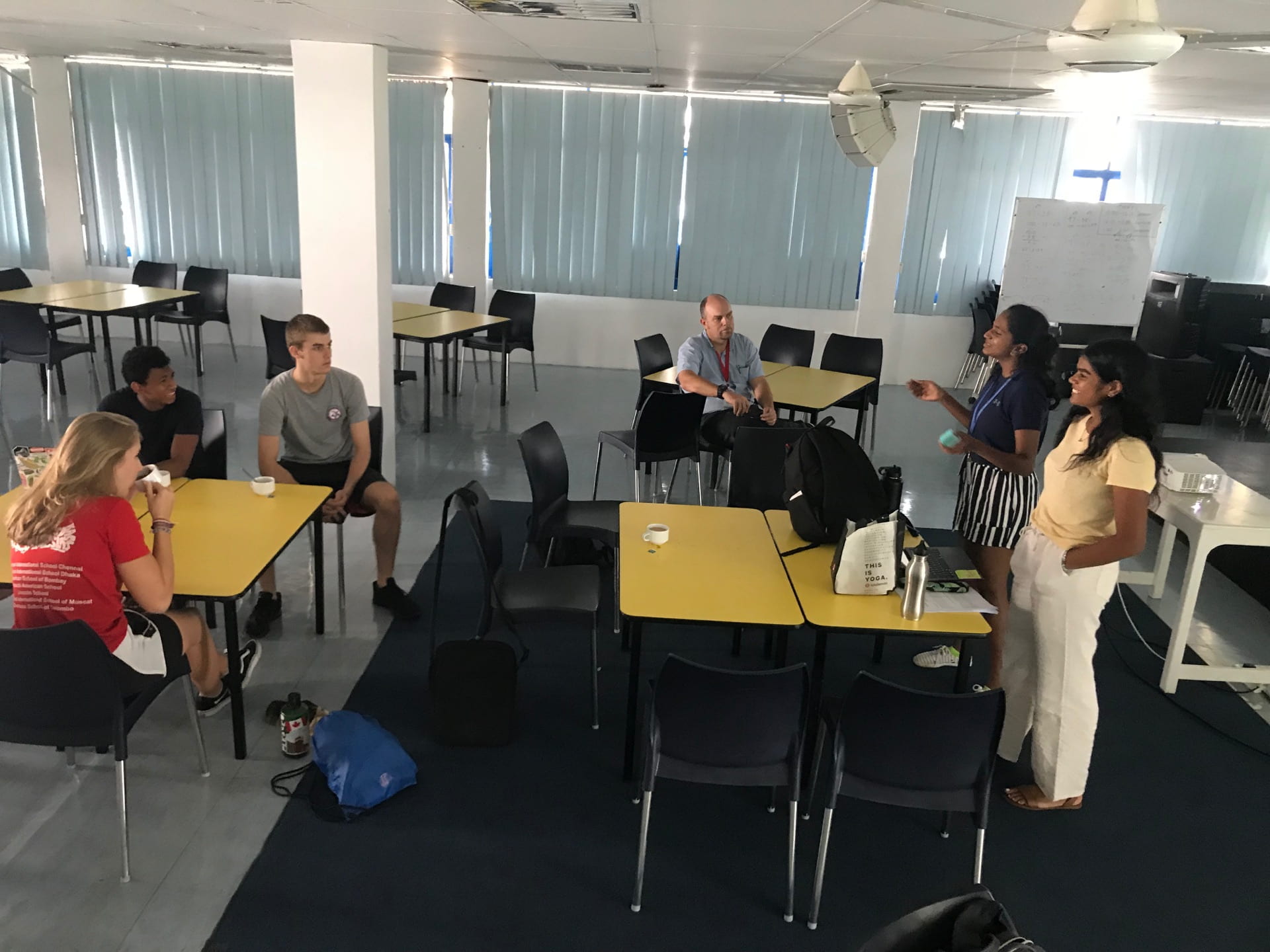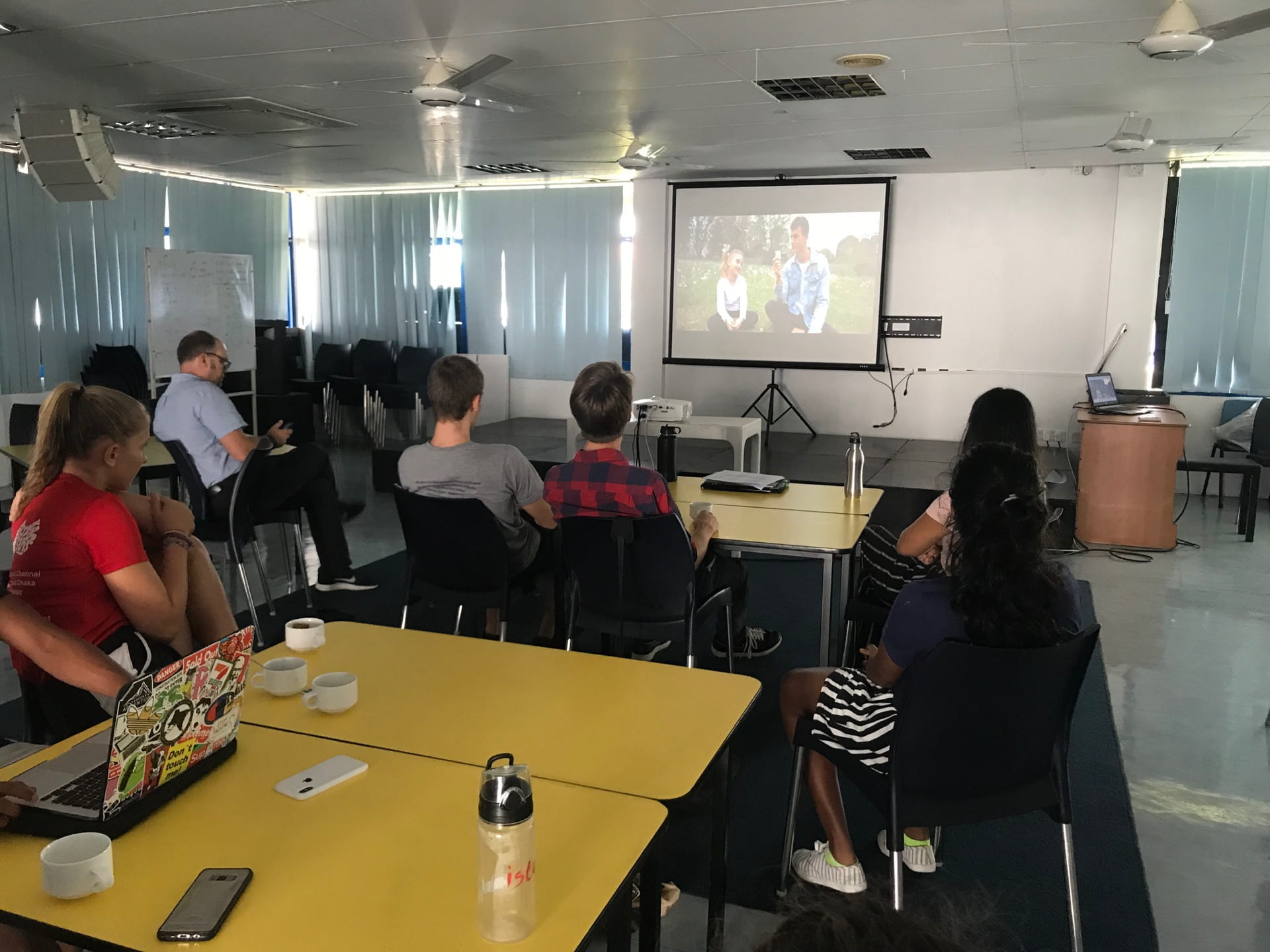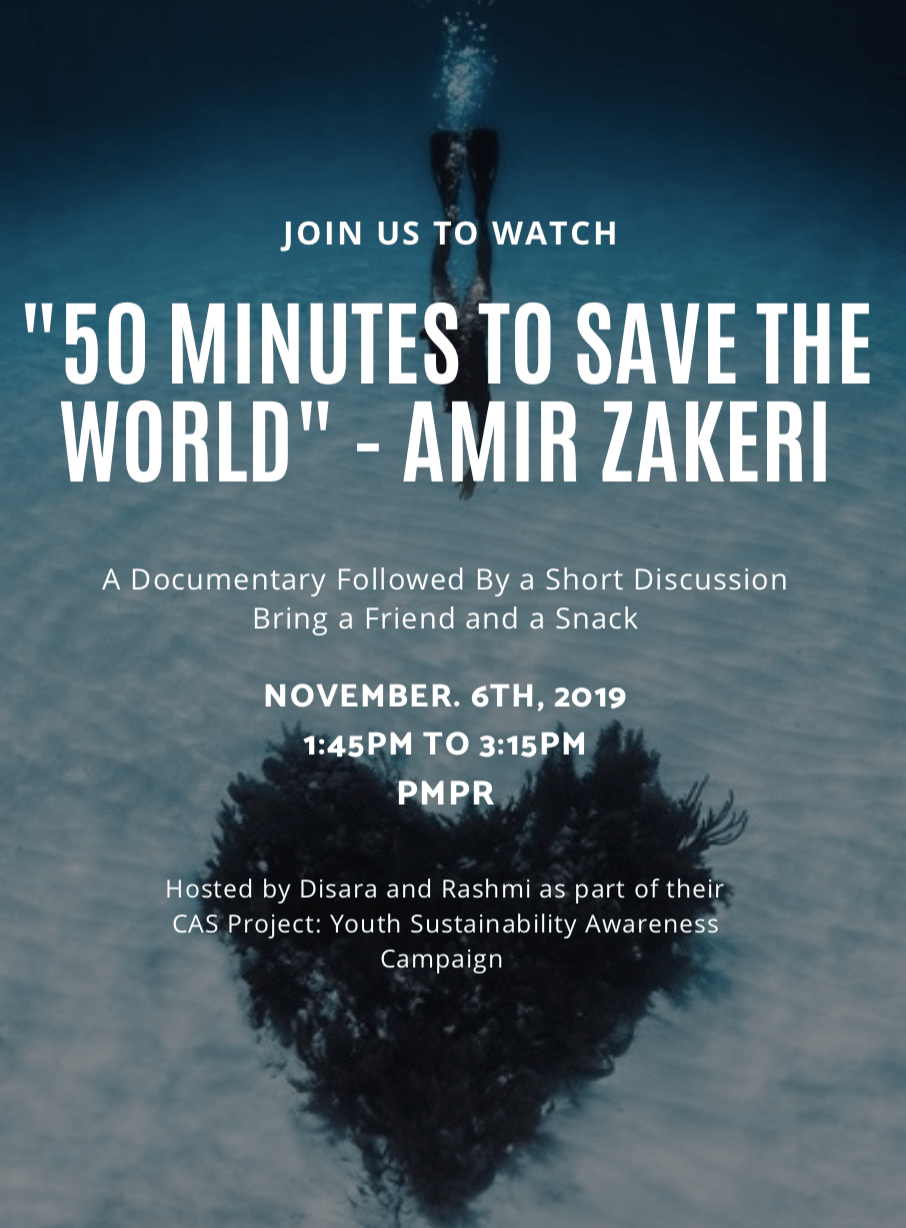Around October, Rashmi and I decided that we would work together for our CAS project. The reasoning being that we had very similar visions for our projects and we work well together considering all of our service efforts. Connecting to our recent efforts with the global climate strike, we knew that we wanted to do something related to raising awareness and the environment. That led to us creating the “Youth Sustainability Awareness Campaign”, a campaign focused on voicing the issues surrounding environmental degradation and to help raise awareness to create a more sustainable tomorrow for our future generations. We felt this would be us extending upon our previous efforts like my Biogas Plant Project, our Global Climate Strike, my primary workshops, etc. We decided to meet every Wednesday to plan and ensure that we were on track to complete our CAS project, since we also have a lot of other commitments like sports and school. The project will focus on three aspects: a documentary evening with a short discussion, a local school talk and promoting our work within the school community.
On Wednesday November 6th 2019, Rashmi and I held our documentary evening where we streamed “50 minutes to save the world” by Amir Zakeri. The documentary focused on shedding light surrounding the issues of coral bleaching and the destruction of marine life. It covered a range of topics and provided some compelling yet shocking images that were powerful in spreading a message. It spoke about how industrialization and tourism are harming coral reefs, but interestingly enough how sunscreen is also a major contributor to the bleaching of corals. A handful of secondary students came to watch the documentary and expressed how they learned new information afterwards.


Following the screening of the documentary we held a short discussion session to ensure that our efforts had some sort of impact on our audience. It is also a great way to start the process of taking action. The questions we discussed with our audience included:
- What did you take away from this video?
- What are some steps you can take to help the situation?
- Which solution presented was the most compelling for you?
- How do the issues discussed in the documentary affect other parts of our environment?
- How has social media help promote the issue and what are some implications of it?
A lot of great ideas were discussed and many students mentioned how they didn’t know how large and bad the issue was. One of the more controversial questions we discussed was the impact social media has no the issues surrounding climate change. It was mentioned how it could be a powerful platform for making a difference and for reaching a large audience of people. However, it was also mentioned how people can use social media to spread fake news and to act as though they are making a difference but to only do it for the likes or the attention. We wanted the students to understand the importance of questioning information that is presented to them prior to deciding to support it or not. Since everyone’s efforts count towards making a difference.
Overall, it was a success and we were able to meet our goal which was to inform the audience and to engage them with the film. It was great to see them learn and itching to take action towards a greener more sustainable tomorrow. Even after the documentary evening some of them messaged me expressing how they learned a lot from the video and they were asking me about the possibility of coral nurseries in Sri Lanka, as it was mentioned several times in the video. Every act counts towards saving our beautiful planet – Mother Earth.

Great post! Super excited for the next component of our CAS Project 🙂